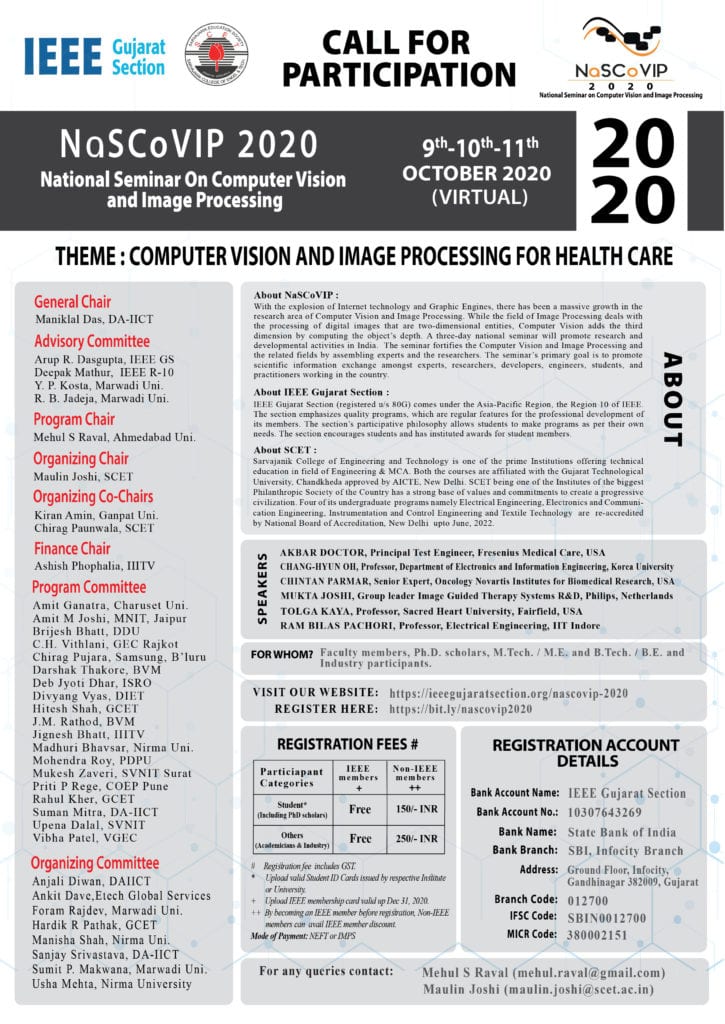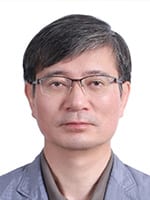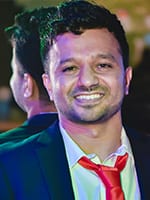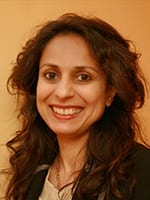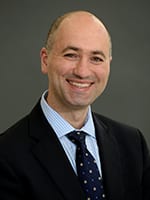



Dear all Interested participants of NaSCoVIP 2020. Thanks for overwhelming response. As enough free slots registrations have been received, we have closed first phase of registration for now. Second phase for paid registrations is open now.
National Seminar on Computer Vision & Image Processing
Theme: Computer Vision and Image processing for Health Care
With the explosion of Internet technology and Graphic Engines, there has been a massive growth in the research area of Computer Vision and Image Processing. While the field of Image Processing deals with the processing of digital images that are two-dimensional entities, Computer Vision adds the third dimension by computing the object’s depth. A three-day national seminar will promote research and developmental activities in India. The seminar fortifies the Computer Vision and Image Processing and the related fields by assembling experts and the researchers. The seminar’s primary goal is to promote scientific information exchange amongst experts, researchers, developers, engineers, students, and practitioners working in the country. The scientific program of the seminar will consist of presentations by leading experts worldwide in the field of Computer Vision and Image Processing. Experts will address the recent developments and trends in the fields. Participants will get enough opportunity to enhance their knowledge regarding the state-of-the-art fields through interaction with experts. It will stimulate the research potential of the candidates who wish to pursue doctoral degrees in the related fields.
About IEEE
IEEE is the world’s largest technical professional organization dedicated to advancing technology for the benefit of humanity. IEEE and its members inspire a global community through its highly cited publications, conferences, technology standards, and professional and educational activities.
About IEEE Gujarat Section
IEEE Gujarat Section (registered u/s 80G) comes under the Asia-Pacific Region, the Region 10 of IEEE. The Gujarat Section, a subsection of Bombay Section, was upgraded to the full-fledged section on 15th August 1990. In 2004 Gujarat Section was adjudged the Outstanding Small Section of Region 10.
The section emphasizes quality programs, which are regular features for the professional development of its members. The section’s participative philosophy allows students to make programs as per their own needs. The section encourages students and has instituted awards for student members.
About SCET
Sarvajanik College of Engineering and Technology is one of the prime Institutions offering technical education in field of Engineering & MCA. Both the courses are affiliated with the Gujarat Technological University, Chandkheda approved by AICTE, New Delhi. SCET being one of the Institutes of the biggest Philanthropic Society of the Country has a strong base of values and commitments to create a progressive civilization. SCET located in the heart of the city presently enrolls more than 2500 students in various disciplines of Engineering and MCA where-in we run 9 UG courses and 7 PG courses. Four of its undergraduate programs namely Electrical Engineering, Electronics and Communication Engineering, Instrumentation and Control Engineering and Textile Technology are re-accredited by National Board of Accreditation, New Delhi upto June, 2022. Since 1995 it continuously keeps on upgrading its resources in terms of its human as well as infrastructure. It continues to foster the innovative minds who have carved a successful and a special niche in this competitive world of academics for technical education and is marching ahead to become one of the most premier academic institutes in the country.
General Chair
-
- Maniklal Das, DA-IICT, Gandhinagar
Advisory Committee
-
- Arup R. Dasgupta, IEEE GS
- Deepak Mathur, IEEE R-10
- Y. P. Kosta, Marwadi University
- R. B. Jadeja, Marwadi University
Program Chair
-
- Mehul S Raval, Ahmedabad University
Organizing Chair
-
- Maulin Joshi, SCET
Organizing Co-Chairs
-
- Kiran Amin, Ganpat University
- Chirag Paunwala, SCET
Finance Chair
-
- Ashish Phophalia, IIIT Vadodara
Program Committee
-
- Amit Ganatra, Charusat University
- Amit M Joshi, MNIT, Jaipur
- Brijesh Bhatt, DD University
- C H Vithlani, GEC Rajkot
- Chirag Pujara, Samsung, B’luru
- Darshak Thakore, BVM
- Deb Jyoti Dhar, ISRO
- Divyang Vyas, DIET
- Hitesh Shah, GCET
- J M Rathod, BVM
- Jignesh Bhatt, IIIT Vadodara
- Madhuri Bhavsar, Nirma University
- Mohendra Roy, PDPU
- Mukesh Zaveri, SVNIT Surat
- Nilesh Ranpura, Einfochips
- Priti P Rege, COEP Pune
- Rahul Kher, GCET
- Suman Mitra, DA-IICT
- Upena Dalal, SVNIT Surat
- Vibha Patel, VGEC
Organizing Committee
-
- Anjali Diwan, DAIICT
- Ankit Dave, Etech Global Service
- Foram Rajdev, Marwadi University
- Hardik R Pathak, GCET
- Manisha Shah, Nirma University
- Sanjay Srivastava, DA-IICT
- Sumit P. Makwana, Marwadi University
- Usha Mehta, Nirma University
Student Volunteers
-
- Ayush Patel (MBIT)
- Hetav Raval (SCET)
- Ibrahim Koicha (BVM)
- Jaimin M. Shimpi (BVM)
- Manan Joshi (DEPSTAR)
- Mansi Bhagat (MBIT)
- Shailesh Bambhaniya (BVM)
- Shubham Mendapara (DEPSTAR)
- Urvashi Ramdasani (NIRMA)
- Vohra Mohammad Zuber Firozbhai (ADIT)
- Yesha Patel (CSPIT)
- Reeti Nanda (MBIT)
| Day 1: 9th October 2020, Friday | |
| Timings (IST) | Content |
| 3.30 pm to 3.40 pm | Welcome Address by Dr. Maniklal Das, Chair, IEEE Gujarat Section |
| 3.40 pm to 3.50 pm | Inaugural Address by Deepak Mathur, Director-Elect IEEE Region 10 (Asia-Pacific) |
| 3.50 pm to 3.57 pm | NaSCoVIP 2020 overview |
| 3.57 pm to 4.00 pm | Speaker Introduction |
| 4.00 pm to 5.15 pm | Ms. Mukta Joshi, Group leader Image Guided Therapy Systems R&D, Philips, Netherlands Title of talk : Advances in medical imaging for diagnosis and treatment |
| 5.15 pm to 5.30 pm | Break |
| 5.30 pm to 6.45 pm | Dr. Chintan Parmar, Senior Expert, Oncology Novartis Institutes for Biomedical Research, USA Title of talk : AI applications for medical imaging biomarkers |
| Day 2: 10th October 2020, Saturday | |
| Timings (IST) | Content |
| 4.00 pm to 5.15 pm | Porf. Chang-Hyun Oh, Professor, Department of Electronics and Information Engineering, Korea University Title of talk : Real-Time MR Thermometry using Deep Neural Network |
| 5.15 pm to 5.30 pm | Break |
| 5.30 pm to 6.45 pm | Mr. Akbar Doctor, Principal Test Engineer, Fresenius Medical Care, USA Title of talk : Test Automation-Medical Devices |
| Day 3: 11th October 2020, Sunday | |
| Timings (IST) | Content |
| 4.00 pm to 5.15 pm | Prof. Ram Bilas Panchori, Professor IIT Indore Title of talk :Detection of human brain disorders using novel machine learning approaches |
| 5.15 pm to 5.30 pm | Break |
| 5.30 pm to 6.45 pm | Prof. Tolga Kaya, Professor, Sacred Heart University, Fairfield, USA Title of talk : Validation Study of a Dry Hand Cleaner as a Potential Hand Sanitizer |
| 6.45 pm to 7.00 pm | Valedictory |
Dear all Interested participants of NaSCoVIP 2020. Thanks for overwhelming response. As enough free slots registrations have been received, we have closed first phase of registration for now. Second phase for paid registrations is open now.
| Participant Category | Registration Fee |
| Students*(Including PhD scholars) | 150 /- INR |
| Academicians | 250/ – INR |
| Industry Professionals | 250/ – INR |
#Registration fee includes GST.
*Upload valid Student ID Cards issued by respective Institute or University.
Mode of Payment: NEFT or IMPS
Registration Account Details
Bank Account Name: IEEE Gujarat Section
Bank Account Number: 10307643269
Bank Name: State Bank of India
Bank Branch: SBI, Infocity Branch
Address : Gr Floor, Infocity, Gandhinagar
Branch code: 012700
IFSC Code: SBIN0012700
MICR Code: 380002151
Registration Form Link: Click here to Register
Digital version of participation certificate will be provided to every participant.
For any queries for contact: mehul.raval@gmail.com or maulin.joshi@scet.ac.in


